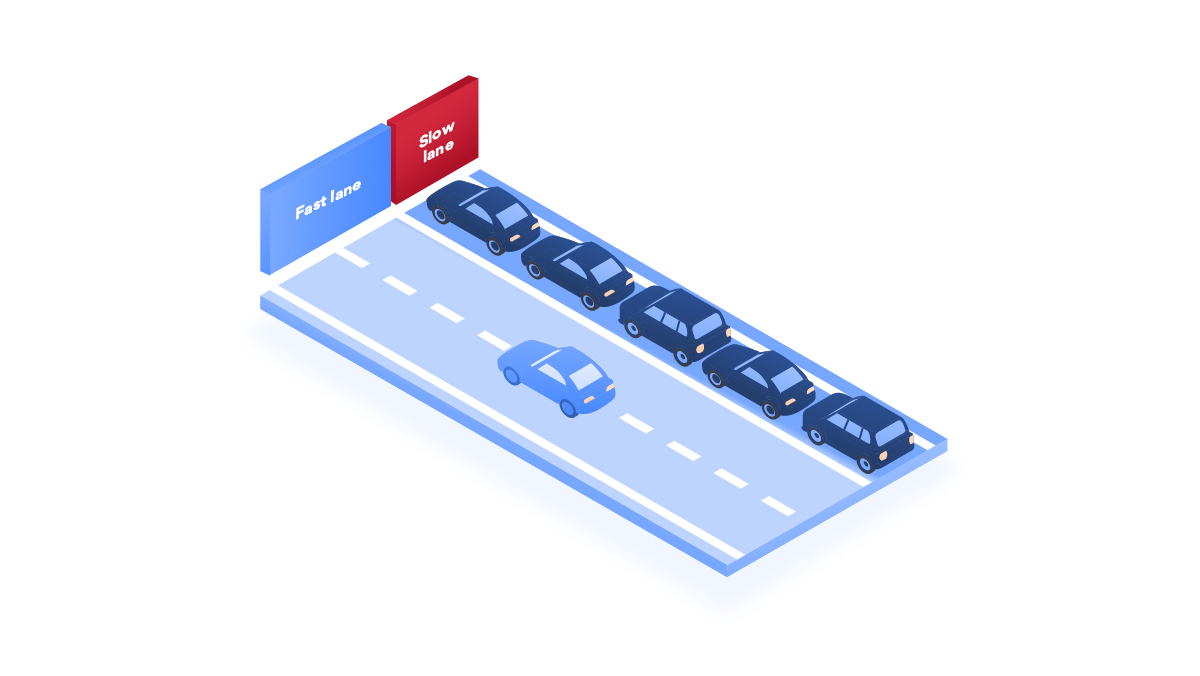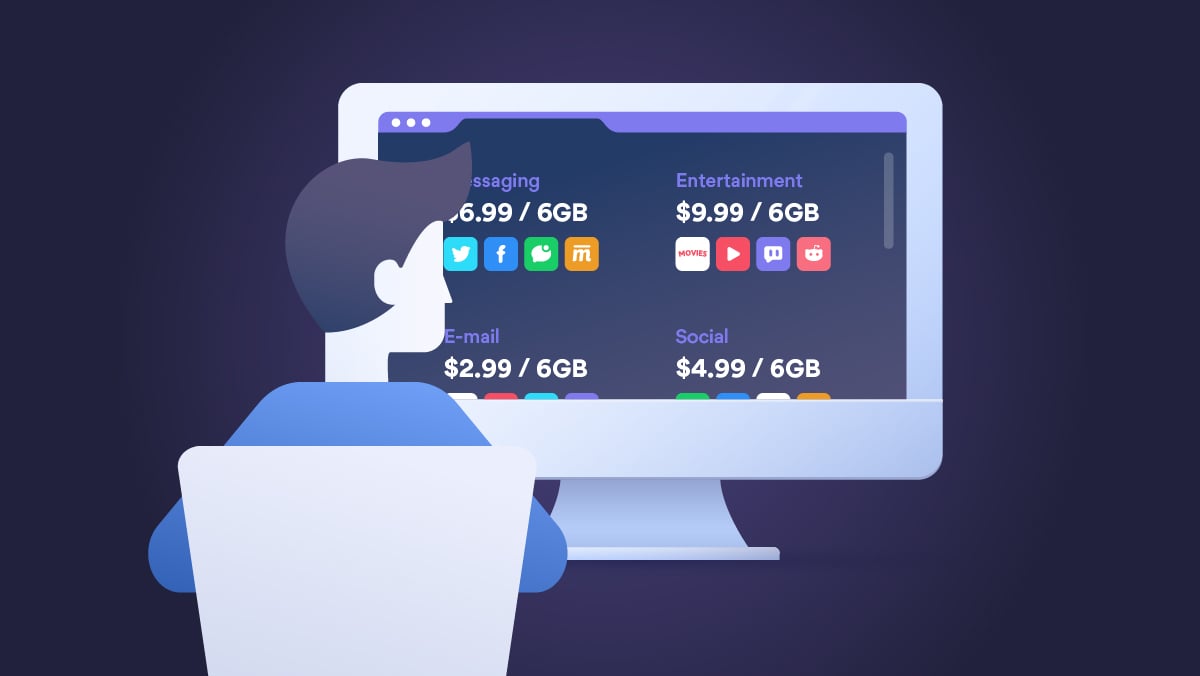What is net neutrality: Its history and importance
Accessing any online content you want at consistent speeds seems like it should be every internet user’s right, but many governments and corporations disagree. Internet service providers manipulate what you can access and at what speeds to line their pockets. Find out how net neutrality has changed over the years and how it looks now.
What is net neutrality?
Net neutrality (or network neutrality) refers to the principle that all internet connections should be treated equally, and internet service providers (ISPs) should allow users access to all content regardless of the source. Without net neutrality, internet service providers could regulate what users can and can’t see and discriminate against certain websites and services.
If there was no net neutrality, ISPs could charge big corporations for putting their traffic into “fast lanes” or even censor their competitors. Imagine this: Your ISP has a deal with Company X, but not Company Y. As a result, they make Company X’s content work fast and throttle your connection to Company Y’s content. It’s so annoying that you can no longer stand it – you switch to Company X. You think that it was your decision, but in reality you were forced to choose them by the dela they struck with your ISP.
Why is net neutrality important?
Net neutrality advocates argue that regulations are needed to encourage innovation and maintain healthy competition. It gives the underdogs a chance to build their businesses and compete with the big guys. Without net neutrality, websites such as YouTube, Netflix, or Facebook would’ve never become what they are now. Internet traffic would’ve been dominated by corporations who had paid ISPs for “fast lanes” to eliminate their smaller competitors.
Also, net neutrality helps ensure free speech and an open internet. If the internet is treated equally, that means that ISPs can’t control what content is accessible online; they can’t censor it, and all opinions and views are available. However, that also means ISPs can’t control fake news, disinformation, or similar content. This does not, however, include illegal content, which would still be dealt with by law enforcement agencies no matter whether net neutrality is regulated or not.
History of net neutrality
2003: First mention of net neutrality
The term was first coined in 2003 by law professor Tim Wu. At the time, ISPs had started banning users from accessing VPNs or using wireless routers and setting up Wi-Fi points. Tim Wu saw this as discrimination against new technologies and knew that unregulated abuse could have long term technological consequences. He was the first to call for anti-discrimination rules. If he wouldn’t have done that, companies like NordVPN might not be around today or might look very different.
2005: The FCC’s first attempt
The Federal Communications Commission (FCC), a United States regulator body, passed the first anti-discrimination law that prohibited ISPs from blocking legal content and preventing their customers from connecting more devices to the internet. This was the first big and memorable win for the FCC.
Then, in 2008, the FCC ordered Comcast to stop slowing P2P connections, which includes torrents. They pointed out that the technology had legitimate applications as well. Comcast, however, didn’t agree and sued the FCC. Comcast won the case, and the court decided that the FCC had no authority to enforce such rules on the broadband provider.
2010: The FCC tries and fails again. Why?
In 2010, the FCC passed a new and more detailed net neutrality order, hoping to close up any legal loopholes. This time, another telecom, Verizon, sued the FCC. In 2014, the same court decided that the FCC didn’t have the right to impose new regulations on ISPs as they are not considered “common carriers” under Title II of the Communications Act.
What does this mean? Common carriers are people or businesses that provide services or products to the general public. They normally operate under legislation created by a regulatory body that has the right to enforce regulations. In this case, that would be the FCC. Common carriers include telecommunication, public transportation, and utility providers. When classified as information service providers instead of common carriers, broadband companies can avoid the FCC’s regulations.
2015: ISPs become common carriers. Hello, new net neutrality order!
Then-FCC chairman Tom Wheeler reclassified ISPs as common carriers, though with fewer obligations than landline operators. The FCC also passed a new net neutrality order and was promptly sued by telecom companies – again. This time around, the court shot down the telecoms and sided with the FCC. Telecoms didn’t take it lightly and appealed the decision.
2017: New FCC chair puts net neutrality back to square one

The 2015 order laid new foundations for net neutrality and an open internet was just around the corner. But with new FCC Chairman Ajit Pai came new changes. He reversed the 2015 net neutrality order, with many accusing him of having been placed there by the telecoms themselves.
He sided with ISPs, saying that previous rules could prevent innovation. He also argued that by removing the opportunity to restrict user freedom and squeeze them for extra cash, ISPs would have no incentive to improve their infrastructure. The move provoked an enormous backlash, and people (as well as bots) flooded the FCC website with thousands of comments. The reversal went into effect on June 11, 2018
All the hard work up to this point was wiped out. Broadband providers are no longer common carriers, so they no longer can be stopped from blocking or throttling internet connections.
The Federal Trade Commission (FTC) could theoretically protect US customers, but they cannot create new rules; they are only an enforcement agency. They can take action if ISPs break fair-competition laws, and it’s not clear whether fast lanes fall under such regulations.
October 2019: Another win for the FTC but an unclear future
Pro net neutrality consumer groups, the District of Columbia, and the attorney generals of 22 states came together and sued the FCC in Federal court to reverse the FCC’s move. Two big questions were raised:
- Did the FCC have any legitimate reason to change ISP classification in 2015 and enforce their regulations?
- Does the FCC have the right to impose regulations on individual states, or should they have the right to have their own net neutrality rules?
On October 1, 2019, the court sided with the FCC and upheld their decision to classify ISPs as they see fit. This was a significant victory for net neutrality proponents, as it meant that the FCC under different future leadership would be able to reimplement net neutrality. However, the court also said that the FCC has no right to ban net neutrality laws passed by individual states.
Want to read more like this?
Get the latest news and tips from NordVPN.
2022: Net neutrality today
Despite a political shift and strong public support for net neutrality, the net neutrality repeal still stands. The fight for net neutrality now falls on individual states. Some states, like California, New Jersey, Oregon, Vermont, and Washington, have already passed legislation protecting net neutrality. Numerous politicians have expressed support for reinstating net neutrality, but efforts are currently stalled.
Net neutrality has its pros and cons, but the current arrangement makes things difficult for everyone: ISPs, states, and the FCC. ISPs argue that it will be difficult to provide service when their cables run across different states and they have different laws. They’re also upset that the current situation might impact their investment opportunities. The FCC states that they believe they should have the right to control state laws on a case-by-case basis.
What does this mean for me?
If you reside in the US, it’s very likely that your ISP provider already has agreements with certain websites and can throttle your connection indiscriminately. You may notice that one site loads perfectly fine while another doesn’t or is completely blocked. You can avoid ISP throttling by using a VPN.
A VPN routes your traffic through VPN servers, making your traffic invisible to the ISP. Your broadband service provider will be able to see that you’re connected to a VPN, but they won’t be able to tell what you’re doing on the internet or what websites you visit. Because of this, they won’t be able to prevent you from visiting certain sites and throttle your connection.
Here at NordVPN we stand for net neutrality and freedom of speech. We believe that all internet traffic should be treated equally and every user should have the right to access it.
